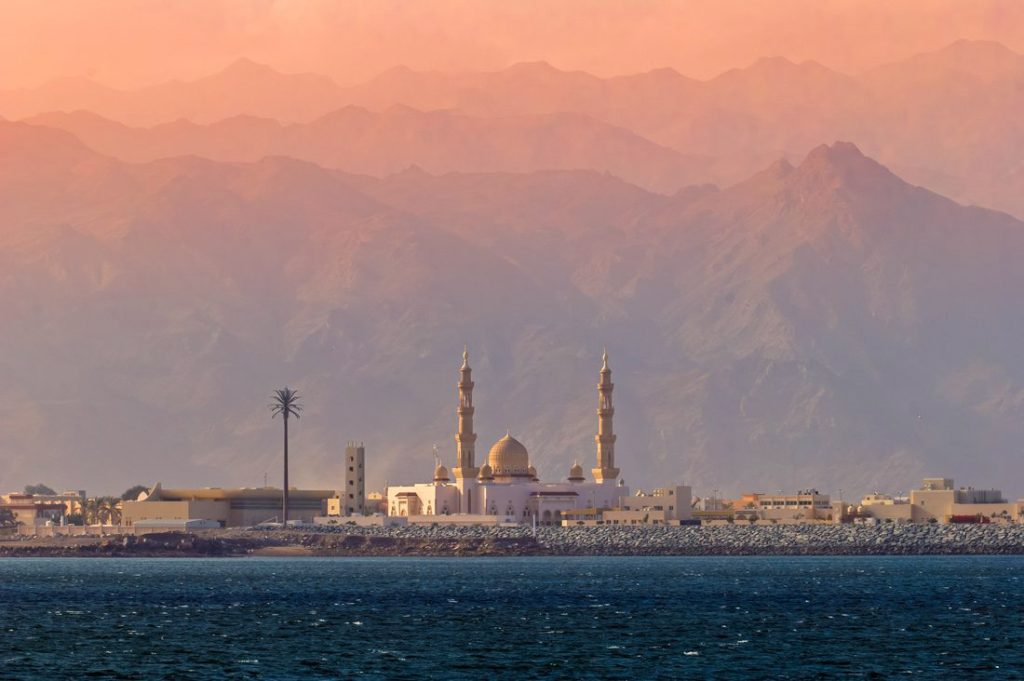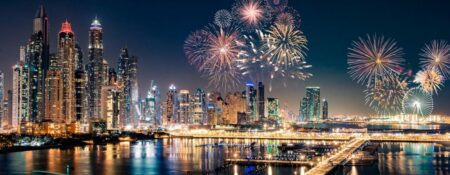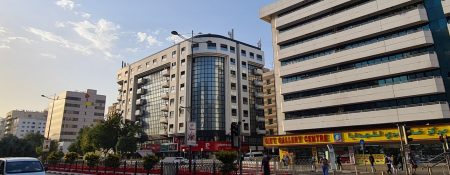Nestled between the rugged Hajar Mountains and the sparkling waters of the Gulf of Oman, Dibba consists of three parts — Dibba Al-Fujairah, Dibba Al-Hisn (part of Sharjah), and Dibba Al-Baya (situated in Oman). The town offers a fascinating blend of rich history, culture, and, most of all – breathtaking scenery. Located about 150 kilometers northeast of Dubai, Dibba serves as a gateway to both mountain and sea adventures, inviting visitors to experience the natural beauty and ancient heritage of this area.
Historically, Dibba has played a significant role as a port and trading hub, with its strategic location along the Indian Ocean trade routes connecting the Arabian Peninsula with East Africa, India, and beyond. Ancient records suggest that Dibba was an important center for trade as far back as the pre-Islamic period, with ships carrying various goods like spices, pearls, and textiles to and from its shores. Archaeological excavations in the region discovered evidence of human settlements dating back to the Iron Age, including tombs and artifacts that reflect the area’s rich history. Over the centuries, Dibba has been influenced by a variety of civilizations, including Persian, Roman, and Islamic cultures.

Dibba’s cultural and historical significance is also reflected in its numerous forts and watchtowers, many of which were built to defend the town from invaders over the centuries. Dibba Al-Hisn, in particular, is known for its well-preserved fort, which stands as a reminder of the town’s strategic importance in defending the coast. The fort, now restored, offers visitors a chance to step back in time and explore the region’s military history, complete with exhibits that highlight Dibba’s role in regional conflicts and its enduring resilience.
Culturally, Dibba offers a glimpse into traditional Emirati and Omani lifestyles, with a strong emphasis on their maritime heritage. The economy of Dibba historically relied on fishing and boat-building – skills that have been passed down through generations in local households. Today, visitors can still witness traditional wooden dhows (boats) being constructed along the shore, a testament to the enduring legacy of seafaring in the region. The bustling fish markets in Dibba are another vibrant cultural experience, where fishermen bring in their daily catch and locals gather to haggle over fresh seafood. The markets offer a sensory feast, with the salty sea breeze mixing with the sights and sounds of the busy port.
One of Dibba’s greatest draws is its stunning natural beauty, particularly its coastline. The town is famous for its pristine beaches, clear turquoise waters and dramatic limestone cliffs that plunge into the sea. The Dibba coastline is a paradise for divers and snorkelers, offering some of the best underwater experiences in the UAE. Marine life here is abundant, with vibrant coral reefs teeming with fish, turtles, and even the occasional sharks. The nearby Musandam Peninsula, just a short boat ride away, is often referred to as the “Norway of Arabia” due to its fjord-like inlets and secluded coves, where visitors can kayak, swim, practice freediving or enjoy a peaceful dhow cruise through the dramatic scenery.
For those looking to explore beyond the water, Dibba’s proximity to the Hajar Mountains provides opportunities for hiking and off-road adventures. These mountains are rich in wildlife, as well as historical and archaeological sites that reveal the long-standing connection between humans and this rugged landscape. The region is home to several wadis (dry riverbeds) that snake through the mountains, offering a stunning contrast between the rocky terrain and the lush greenery that flourishes after seasonal rains. Wadi Zikt and Wadi Khab Al Shamsi are popular spots for nature enthusiasts, with their palm groves, natural pools, and ancient petroglyphs carved into the rock faces.
In recent years, Dibba has become a popular destination for both local and international tourists, with its combination of adventure, culture, and relaxation. The town’s resorts and eco-lodges cater to a growing interest in sustainable tourism, offering activities that highlight the region’s natural assets while preserving its cultural and environmental heritage. Whether you’re looking to dive into the deep blue waters of the Gulf of Oman, explore ancient mountain trails, or simply relax on a secluded beach, Dibba offers a tranquil yet enriching escape.
In conclusion, Dibba is a town where history, culture, and nature come together in perfect harmony. Its coastal beauty, ancient trade routes, and rugged mountain landscapes offer a wealth of experiences for those looking to explore the rich tapestry of the UAE’s eastern coastline. Whether discovering its underwater treasures, walking through its historical forts, or engaging with its living traditions, Dibba promises an unforgettable journey into the heart of the Arabian Peninsula’s maritime and mountain heritage.




The UAE’s rich history is rooted in trade and tied to Islam. Its unique location between Europe and the Far East became the crucial factor in it's growth into the world's largest trading hubs. Throughout the ages, these lands had attracted merchants from India and China, and were prized by Europeans, in particular the Portuguese, the Dutch and the British.
After the discovery of oil and the formation of the Emirates, the wise rulers began the rapid development of the country's economy, shaping it into what it is today. Though small in size, the UAE quickly became an important player in regional and international affairs.
Although it's growth and development, UAE heritage have not been forgotten - on the contrary, is still well-respected among the nationals. History and culture of local people can be felt in the legendary hospitality of local hotels, architecture of modern skyscrapers and openness and kindness in living among the multinational community.
Here you can read various articles about UAE heritage, history and culture, and better understand, why this country's development became such a success throughout the years.